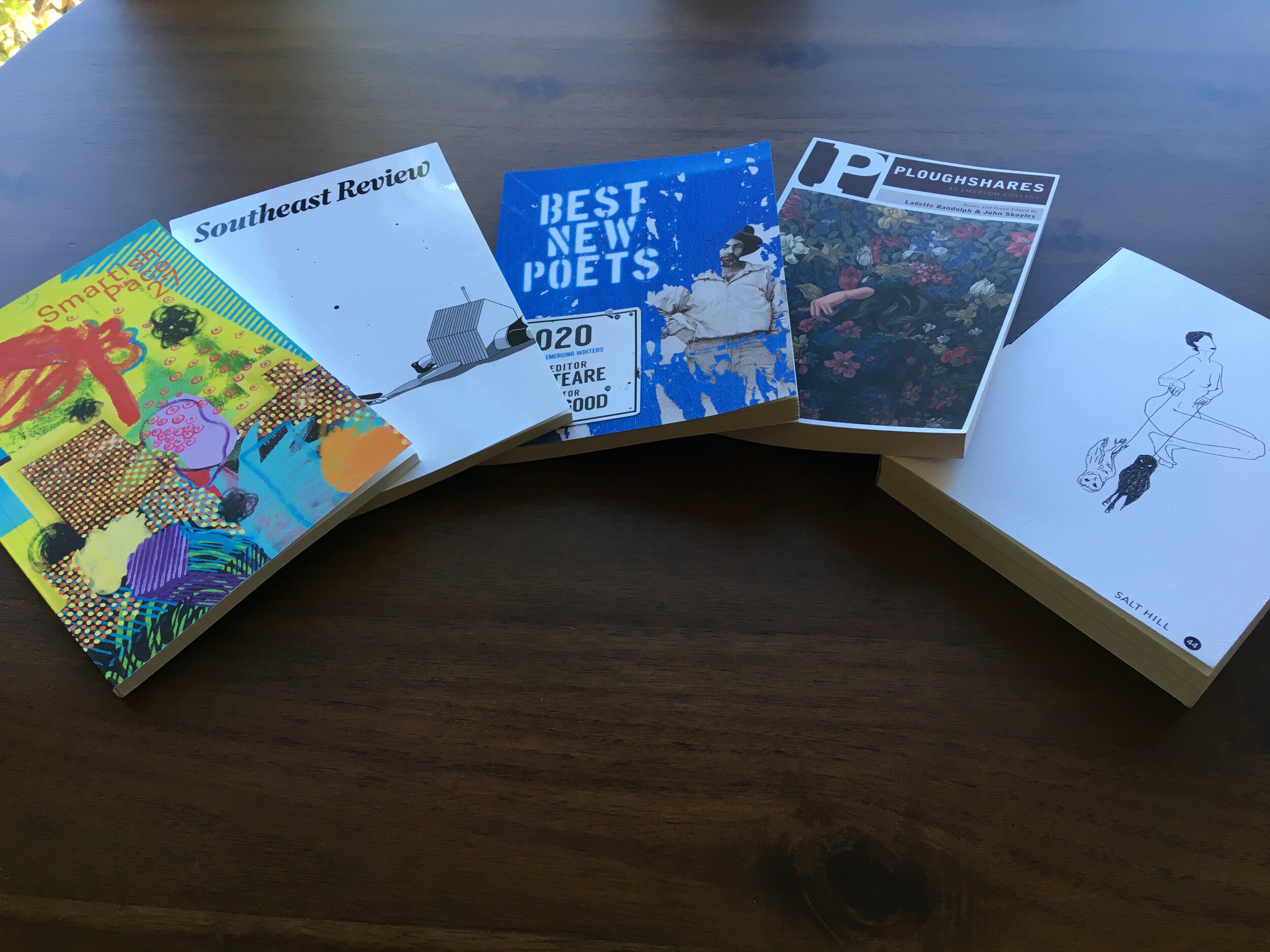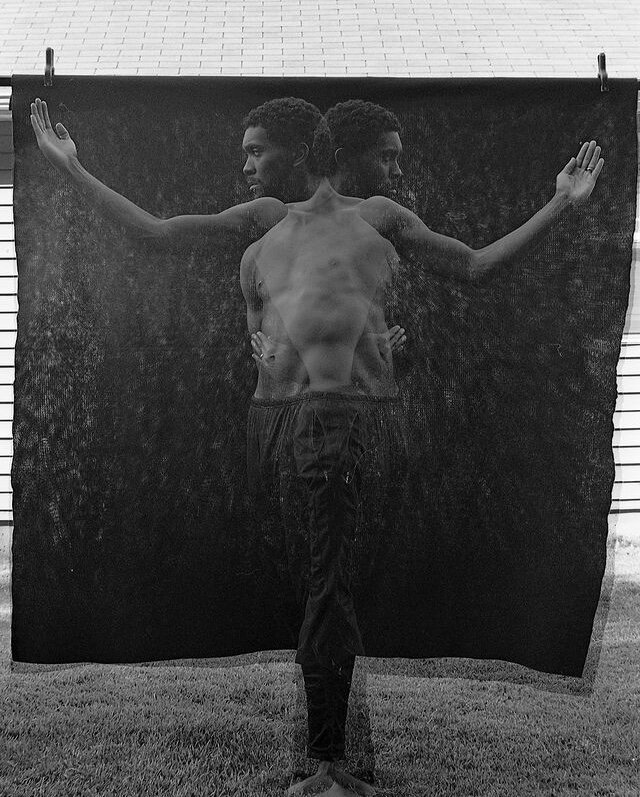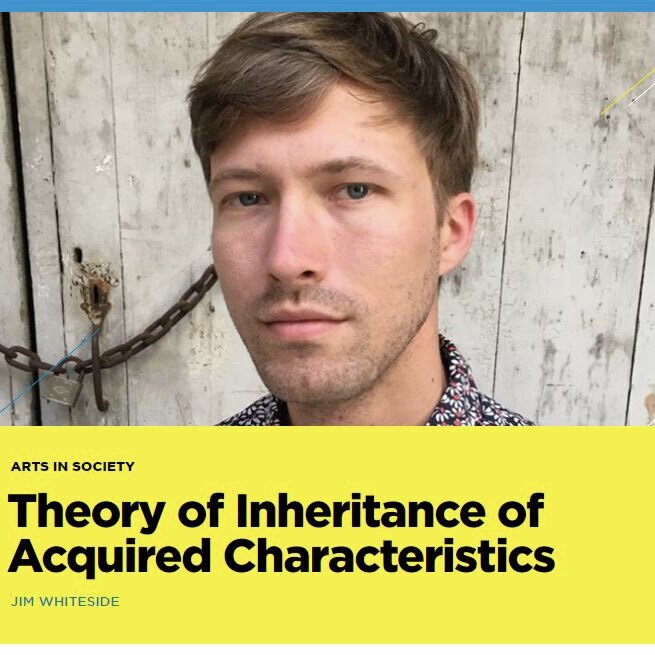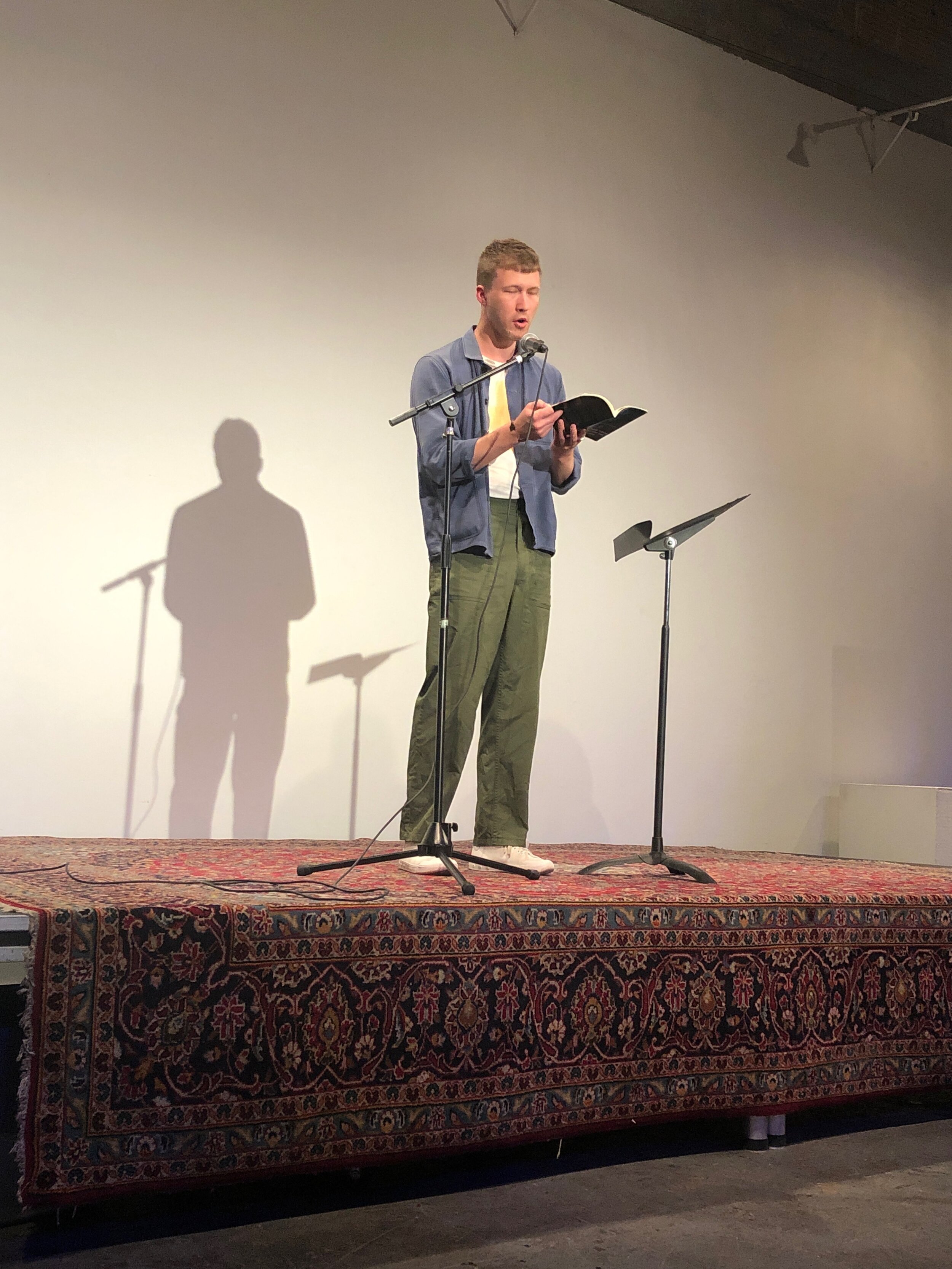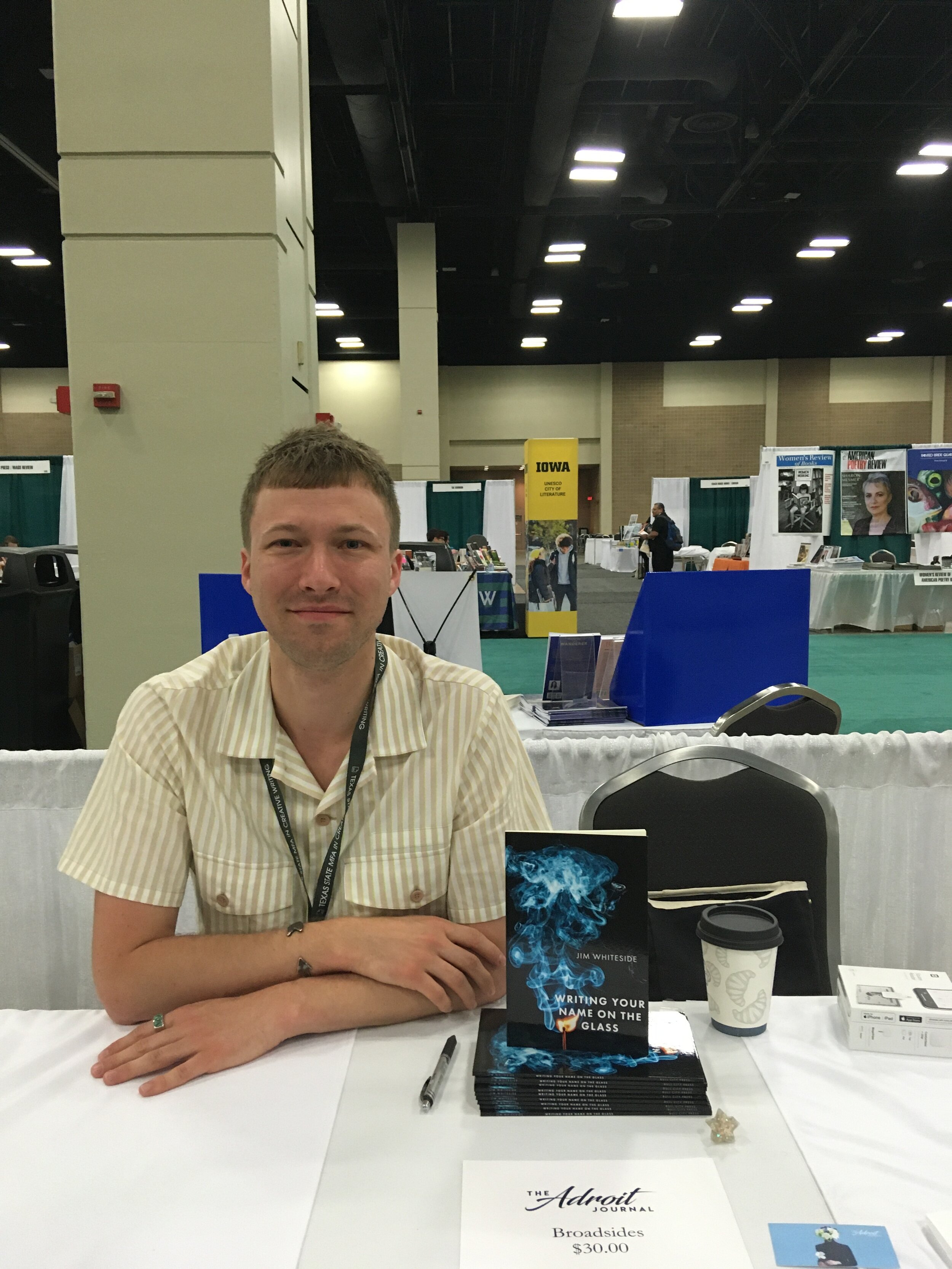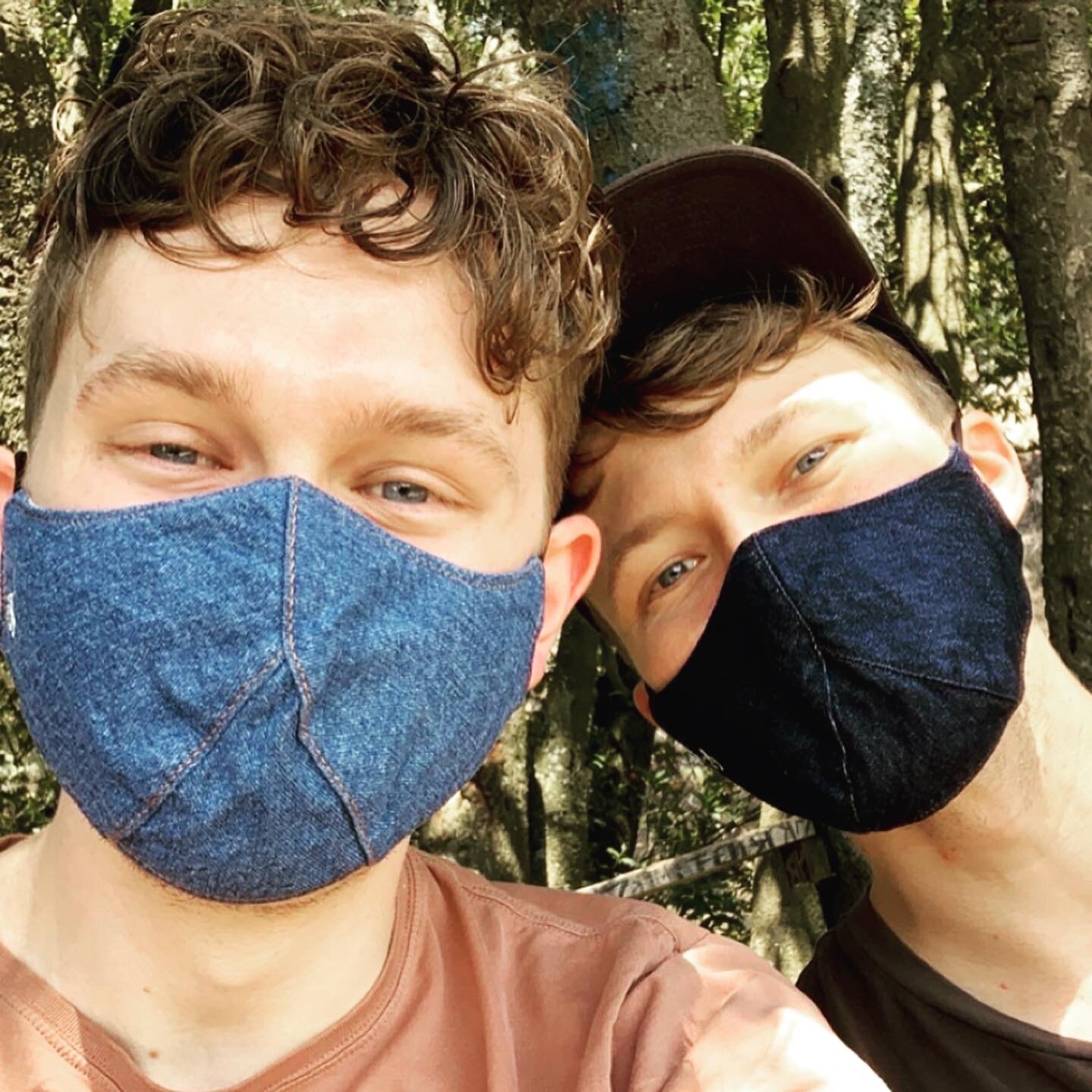“A year like no other.” “Unprecedented.” “A time of change.”
2020 has been such a year of highs and lows. The initial excitement of new poems, publications, and readings was so thoroughly offset by the fact that 2020 has been a year of reckoning, one marked by such pain. In many ways, I’m so fortunate, and this year has been a reminder of that. The support from the Stegner Fellowship has given me stability in a time characterized by instability, the privilege to stay home, to keep my distance and watch the world from my apartment’s bay windows, watching the bees as they studied the little white flowers on the enormous jade plants outside.
I was fortunate to publish poems in some amazing places — Best New Poets 2020, The New York Times, Ploughshares, Boston Review, Smartish Pace, Shenandoah, Southeast Review, and Salt Hill, with plenty of forthcoming publications to look forward to in 2021.
But publications are far from everything. In 2020 we witnessed real human strength and bravery in the face of the COVID-19 pandemic, we saw people making sacrifices for one another, and we lost a tragic and unnecessarily large number of lives along the way. We witnessed calls for change and reforms in laws and law enforcement as the Black Lives Matter movement gained momentum. These calls for justice can not fall of unhearing ears — it’s my job as a white American and the duty of all Americans to work for real change, for reform and justice, for equal and fair treatment under the law, for anti-racist practices and teaching in our classrooms and in our lives.
In light of all of this, I am hopeful for the future. I have to be. I’m hopeful for the resilience of the human spirit, for our ability to enact change in our lives and our institutions. I’m hopeful for a future characterized by empathy and care.
Much of the time, the enterprise of the writer feels more than a little silly. We sit in our little rooms searching for the right forms of expression. I’ve been thinking a lot this year about a line from Layli Long Soldier’s poem “38,” which says, “Keep in mind, I am not a historian.” In many ways, poets aren’t historians. We don’t keep objective record of much at all, but we are agents of collective and social memory. We help interpret the past and present in an attempt to help some future reader understand the experience we write from. Poems aren’t the single solution to any of our present day problems, but they are little empathy machines. They help us feel connected in ways that aren’t normally possible. They help us understand another’s experience in a completely intimate way. And in a time when I’ve never felt so distant from my family and friends, poems help bridge that gap.
All of this is to say, I’m oddly hopeful for next year. I’m so grateful for the outpouring of support my poems have received this year, and I’m looking forward to the opportunities and the interconnectedness that my poems can help me achieve next year.
As I’m writing this, a line I haven’t thought of in a long time popped in my head, the last line in Richard Siken’s Crush, the book that guided so much of my early writing:
“We are all going forward. None of us are going back.”
The only way forward is to have a real reckoning with the past. We can build a better future for ourselves and for others, but it will require real introspection, self-interrogation, re-building, justice.
I love you all, and I am thankful for you.
Cheers,
JW
